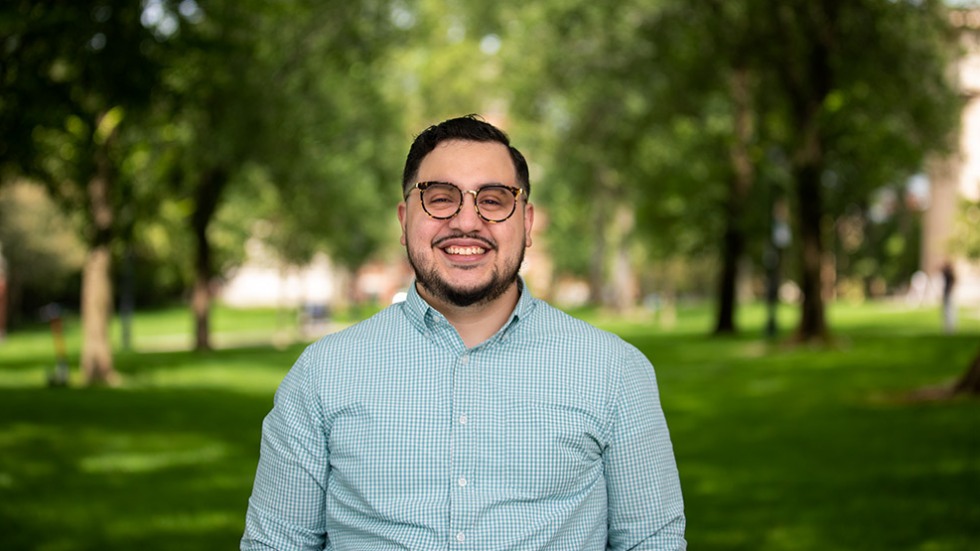We are thrilled to welcome Dr. Robert Rosales, PhD, LCSW, as a new affiliate of our center. Dr. Rosales is an Assistant Professor (Research Scholar Track) in the Department of Behavioral and Social Sciences at Brown University, his research focuses on the behavioral health effects of minority stress that include racism, heterosexism, and other forms of discrimination and the sociocultural factors that protect against them.
His scholarship centers on addressing health disparities experienced by racial, ethnic, and sexual minority populations, particularly in relation to substance use and access to quality behavioral healthcare. Dr. Rosales’ work has shed light on the structural determinants of health, including how policy interventions like the Affordable Care Act have affected healthcare access for marginalized communities.
In 2021, he received a prestigious NIH K08 Career Development Award from the National Institute on Minority Health and Health Disparities (NIMHD) and the NIH Office of the Director for his project titled “Socio-Cultural Protective and Risk Factors of Alcohol Use among Non-Hispanic White and Hispanic Sexual Minority Youth.” This work builds his expertise in ecological momentary assessment, longitudinal analysis, and culturally adaptive interventions—essential tools in tailoring behavioral health research to the unique needs of diverse youth.
Dr. Rosales also contributes meaningfully to public discourse. In a recent opinion piece published in the Miami Herald, he critiques policies like Florida’s “Don’t Say Gay” and “Stop WOKE” acts, which suppress discussions of sexual orientation, gender identity, and race in educational settings. Dr. Rosales warns that these laws pose serious mental health risks for LGBTQ+ students of color, who already face elevated levels of stress, stigma, and structural marginalization. He argues that such policies not only undermine young people's emotional safety but also strip them of personal agency and supportive community connections which are critical factors for their well-being.
“Florida’s racist and homophobic policies come with a slew of problems for LGBTQ+ youth of color,” he writes. “We must consider the ensuing limitation of their personal freedoms... [as] these policies will work in conjunction to amplify the difficulty of engaging in discussions about race and homophobia.”
Dr. Rosales’ recent research further underscores these themes. His article, “Double Jeopardy: Does Intersectional Discrimination Moderate the Relationship Between Acculturation and Cigarette Dependence Among Latinx Sexual Minority Men?” examines how intersectional discrimination and acculturation shape smoking behaviors in marginalized communities. The findings highlight both the resilience of Latinx sexual minority men and the urgent need for culturally nuanced public health strategies.
With a robust portfolio that bridges academic research, public health policy, and social advocacy, Dr. Rosales brings a deeply impactful perspective to our center. We are honored to collaborate with him as we continue working toward health equity and inclusion for all communities.
In addition to his research and advocacy, Dr. Rosales is deeply committed to mentoring the next generation of scholars and practitioners. He takes great pride in working with students from racial and ethnic minority backgrounds across all levels of education that include: undergraduate, graduate, medical, doctoral, postdoctoral, and early career stages to help develop research skills and community engagement strategies focused on equity. Many of his mentees have co-authored publications, op-eds, and conference presentations with him, and have gone on to pursue impactful careers in medicine, academia, community organizations, consulting, and other graduate programs. Beyond the university setting, Dr. Rosales has also mentored students in the broader community and is especially excited to begin mentoring a Latinx high school student through the Hyde Square Task Force, a Boston-based organization dedicated to empowering Latinx youth.
